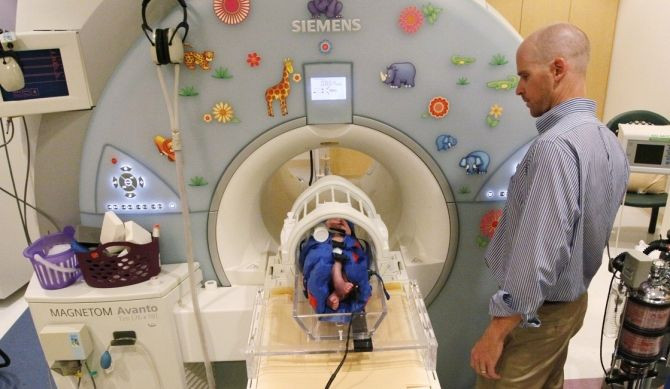Brain Scans May Predict Future Alcoholism

Brain scans may help predict whether a child is at risk of developing a drinking addiction later in life, a new study has revealed.
While heavy drinking is known to harm the developing brains of teenagers, the latest findings show that certain patterns of brain activity may help determine children who are at an increased risk of developing alcohol dependence.
The study, published in the Journal of Studies on Alcohol and Drugs, consisted of 40 participants between 12 and 16 years old.
Researchers examined the brains of children at the start of the study, before they had started drinking, using special MRI scans and three years later at the end of the study.
Lead researcher Lindsay M. Squeglia, of the University of California, San Diego, and her team said that about half of the teens had started to drink alcohol during the three-year study.
They found that children who had displayed less activation in certain areas of their brains at the beginning of the study were more likely to become heavy drinkers in the next three years.
Researchers defined heavy drinking as having four or more drinks on an occasion for females and five or more drinks for males.
However, once teenage participants started drinking, researchers noticed that similar to heavy adult drinkers in previous studies, brain activity in heavy teenage drinkers showed increased activity as they tried to perform memory tests compared to teenage participants who had not started drinking.
"That's the opposite of what you'd expect, because their brains should be getting more efficient as they get older," Squeglia said in a news release.
Researchers said that the latest findings add to the growing evidence that heavy drinking can negatively affect teenagers' developing brains, and that brain activity patterns in children may predict which kids are more likely to become problem drinkers.
The latest finding is interesting because it suggests that people may have some pre-existing vulnerability for problem drinking, Squeglia said.
While the finding does not mean that teenagers should start having MRI scans to see which ones might start drinking, it does give clues into the biological origins of problem drinking in kids.
Researchers said that the findings also highlight the message that heavy drinking may negatively affect adolescent brains at the time in their lives when their brains need to be working efficiently.
"You're learning to drive, you're getting ready for college. This is a really important time of your life for cognitive development," Squeglia said.
Researchers noted that while all the teenagers in the study were healthy and well-functioning, it is possible that teens with certain disorders like depression or ADHD show greater effects from heavy drinking.
Published by Medicaldaily.com



























